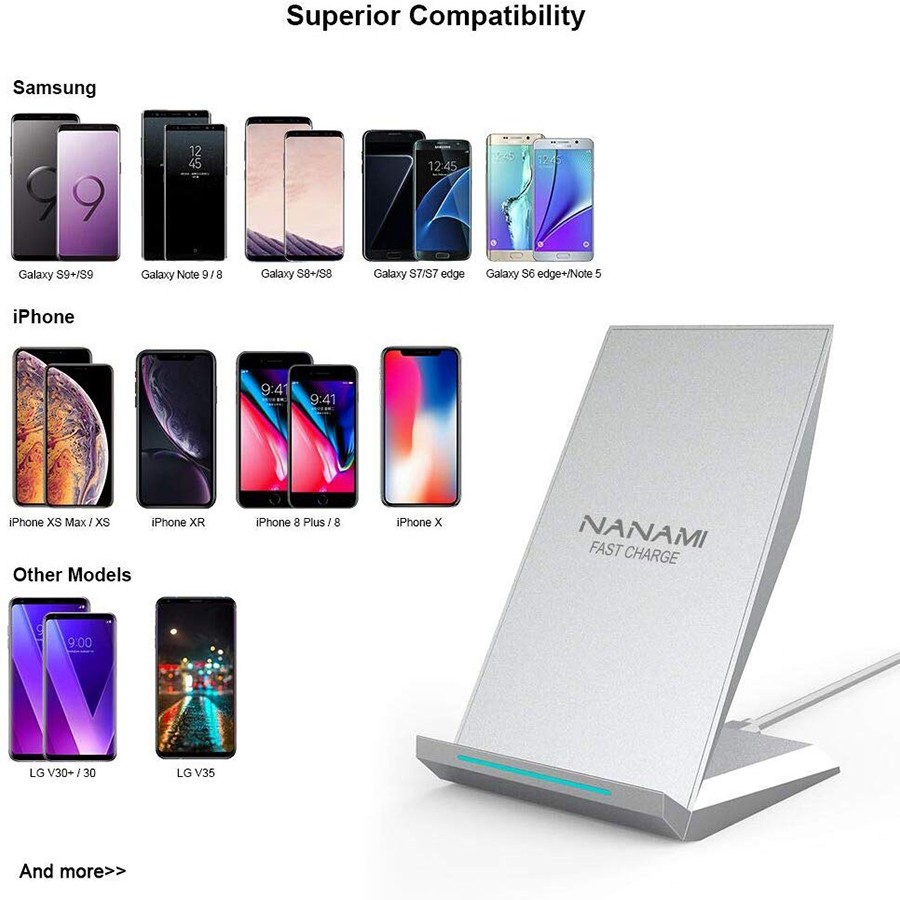When Xiaobian was surfing the Internet yesterday, she saw a netizen asking if the wireless charger would radiate. And whether it will damage the mobile phone, and whether its use process is safe. Of course, others say that the charging process of wireless charger is very slow. Is that what they say? Let's take a look at the power of wireless charging and its security.
As we all know, the biggest advantage of wireless charging is that it can be charged at any time without plug-in, plug-in and plug-in. Convenience is the biggest selling point. Although there are many brands of wireless charger, there are four charging methods: electric field coupling, electromagnetic induction, magnetic resonance and radio wave.
Electromagnetic induction is familiar to all, but also a more widely used one.
The principle of wireless charging is not complicated. Taking electromagnetic induction as an example, simply speaking, the current flows through the coil, and the magnetic field generated by the coil induces the current to the nearby coil. The principle is simple and the technology is mature.
Some netizens are curious about the efficiency of wireless fast charging. After all, it has been said that the charging speed of wireless charging is relatively slow.
It has to be said that there is no comparability between wireless charging and wired charging in terms of efficiency. At present, wired fast charging has 30W and 40W high-power fast charging, while wireless charging mainly focuses on 10W, 7.5W and 5W power. The advantage of wireless charging is that it can be discharged and charged at any time to ensure the charging of fragmentation time. After all, we are not playing with our mobile phone all the time, and wireless charging is not to fill the mobile phone quickly, but to ensure that your mobile phone is always full of electricity, so it is acceptable to charge slowly.

Finally, we will discuss the security of wireless charging. This is also a problem that many people are concerned about. Is there radiation in wireless charging?
Wireless charging has radiation, most of the energy has radiation. But wireless charging technology is realized by electromagnetic induction principle. Although there is radiation, it is not ionizing radiation. When wireless charging works, the radiation value is not high and there is no danger. Generally, wireless charger works close to mobile phone, which is almost harmless to human body.
Some statements about radiation online are actually alarmist. After all, our living environment is a huge magnetic field. If there is harmful radiation to human body, I think no one can avoid it.
There are many wireless chargers in the market. If you feel dazzled, you can choose the power of the wireless chargers. Most Android supports 10W wireless, while Apple has 7.5W power, so you can choose according to your phone. You can also choose high-power wireless charging in one step, and you can continue to use your mobile phone when you change it later.
In addition to power compliance, you can also choose whether you have fan cooling, long-distance charging with shell, light sensing control and other functions.
The most important thing for us to choose wireless charger is to pay attention to quality and safety.
The protection function is complete and charging is worry free. When selecting wireless charger, attention should be paid to whether it has foreign matter detection, temperature protection, over-voltage protection, over-current protection, etc. Foreign object detection can identify when there is a foreign object to ensure the charging safety; temperature protection can automatically cut off the power when the temperature is too high; over-current and over-voltage protection is also very important.
Wireless charging is a development trend. We need to understand it, distinguish it, and finally use it correctly, so that it can bring convenience to our life, rather than support or contradict it.
Tel:139 2462 2408
Attn:Mr. Zhou
QQ:378912250
E-mail:support@nanami.cc
Add:East Ring Road, Longhua, Longhua New District, Shenzhen City,